Health main battleground for assembly election
- Published
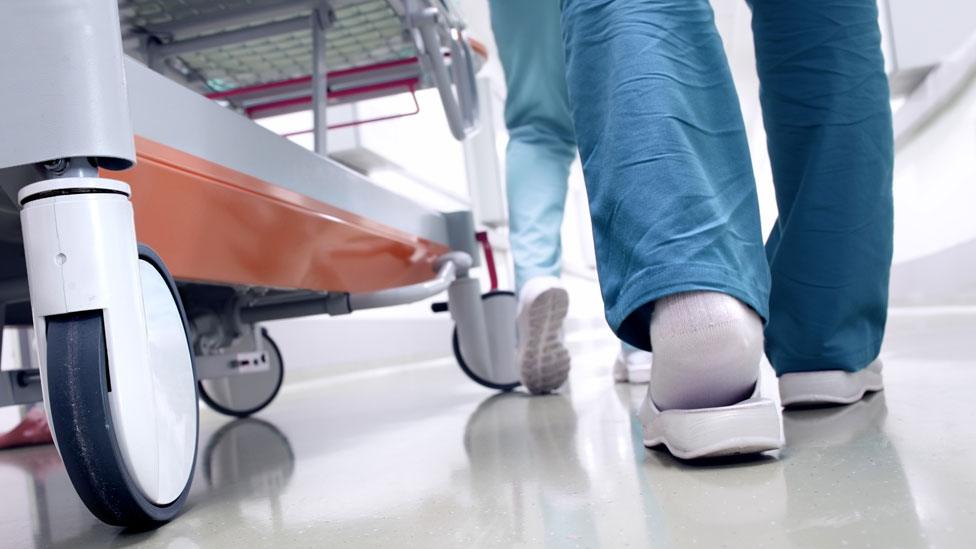
It will not surprise you health is going to be the big issue in the assembly election.
The Welsh Government spends around 47% of its entire budget on health and social services.
It is not unrealistic to think if demand continues to increase, health spending could account for more than half of that budget in the not-too-distant future.
A third of people asked in the St David's Day poll consider health to be their main concern when they go to the ballot box on 5 May.
And the NHS in Wales is feeling the strain of this almost perfect storm of increasing demand from an elderly population, coupled with shortages of staff.

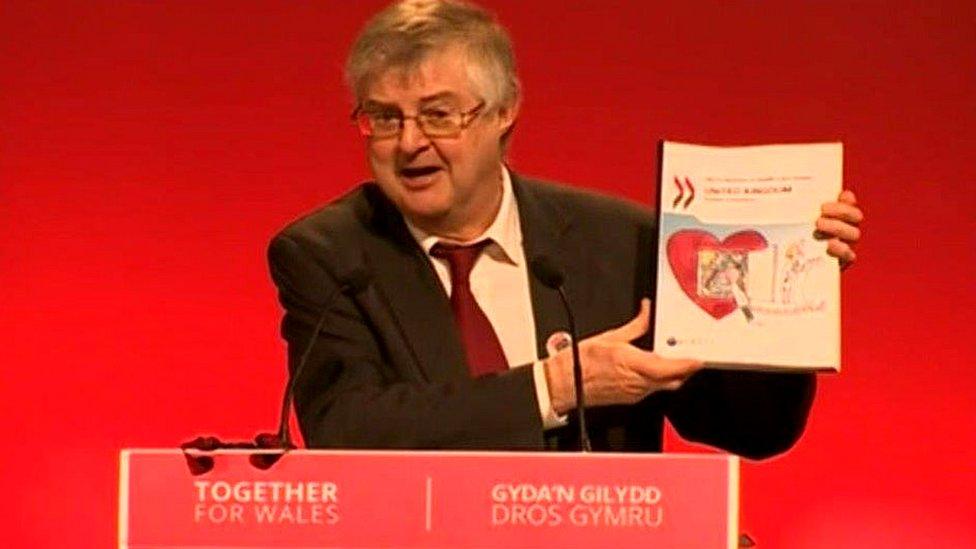
No better or worse: Mark Drakeford with a copy of the OECD review report
The debate over how well the NHS is doing
There has been a long debate on relative NHS performance between England and Wales - which was enough of a campaign issue ahead of the general election a year ago.
As part of our BBC Wales health week series last year, we asked Nuffield Trust to work with us on some analysis looking at that very question.
Looking purely at performance against the totemic targets (A&E waiting times, ambulance response times, waits for planned treatment), it concluded that it was a fact that the Welsh NHS performs more poorly than the English NHS.
But on cancer targets, Wales is holding its own if not marginally better and had more success than in England in reducing delayed discharges from hospital.
The Nuffield Trust later published its four nations report which came to the conclusion that the NHS in no part of the UK appeared to be lagging behind any other part.
Yet it warned against comparing Wales with England as a whole because population here is sicker, poorer and older than in England.
It also found different approaches to managing performance with the Welsh NHS putting more emphasis on working together, less on what the think-tank described as a "targets and terror regime" so prevalent in England.
Then the Organisation for Economic Cooperation and Development (OECD) earlier this year found none of the health systems in the four nations appeared better or worse than the other on quality and safety. In fact it said on things like cancer survival rates the UK as a whole was performing more poorly than you would expect.
Health Minister Mark Drakeford has already brandished a copy of the international review in his last conference speech.
But that is not to say that there is nothing in it for opposition parties here.
The OECD is very critical that health boards in Wales, which were formed in 2009 in Welsh Labour's complete dismantling of the internal market in the Welsh NHS have not delivered as much as they should have.
Although the OECD is neutral on the question of whether competition in itself is a good or bad thing for NHS performance.

So what will the political parties be talking about?
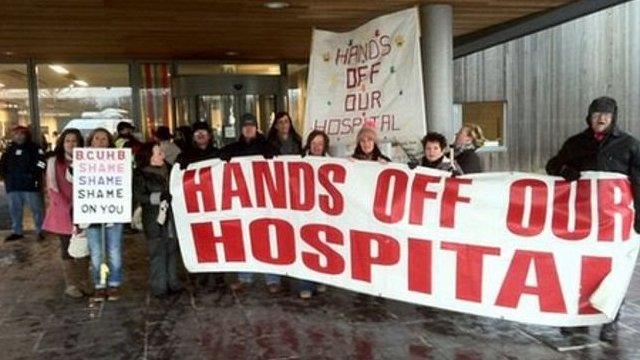
Service change has been a big issue in parts of Wales over the last few years
THE NHS IN NORTH WALES
One of the biggest issue will be about standards of care in north Wales - lots of interesting constituencies there.
Betsi Cadwaldr health board was put into special measures after management failings and care concerns. Now, special measures in Wales, given the reluctance here to use the "targets and terror approach" is therefore a big deal.
SERVICE CHANGE
There will be a lot of talk about service change, the reorganisation of frontline services. Certain political parties are talking about protecting local services, some suggesting rewinding the clock and undoing the centralising of maternity service in west Wales. This is despite a professional consensus that some specialist hospital services are too thinly spread.

What should we look out for from the different parties?
We will soon be able to examine their manifestos in more detail. But for now, we know the Conservatives will argue that they will guarantee to protect health spending. They also want a moratorium on hospital closures and are promising elected health commissioners. UKIP are also talking about that.
Plaid Cymru want to recruit 1,000 more doctors, implement what is arguably is one of the biggest shake-ups of the NHS's structure since Aneurin Bevan - essentially bringing GP and social services under the control of councils as part of what is described as community NHS Wales and forming one Wales-wide health board to run hospitals. Plaid's argument is it means services will become more joined up; others argue it would lead to an even greater division between hospital care and community care.
Labour will try to defend its record - claiming that by the end of the assembly term, it was spending more on health in Wales than England; although it fails to mention still around 6 to 7% less on health per head (according to OECD) than in Scotland and Northern Ireland. It is also pledging to train more doctors for life-threatening illnesses and train more health professionals.
But there will also be a lot of talk about those problems that we see across the UK but arguably are more acute in Wales: how do get enough junior doctors to Wales? How do you get GPs to work in rural areas?
The Lib Dems want to see more nurses employed. But perhaps reflecting their precarious electoral position, they have been talking a lot recently of the need to take politics out of the NHS.

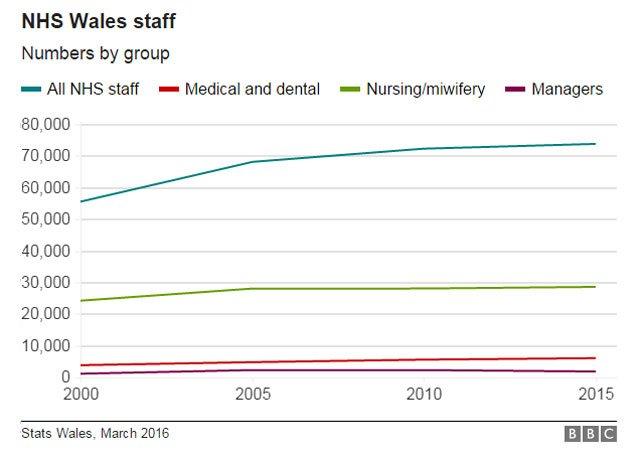
The money question
Finally there'll be a debate on how much you can afford to spend on health.
NHS Wales was given an extra £278m to its £6.3bn budget for the next financial year; it has nearly 74,000 staff with a pay bill making up around three quarters of spending.
Now at the beginning of the last assembly term there were cuts to the Welsh health budget essentially, even though in Westminster health was better protected. During that squeeze it is undeniable that performance suffered. Welsh Government has since pumped much of the extra money as a result of health spending commitments into health here.
But then that leaves you with this question: if almost 50% of the Welsh budget is spent on health and social care, how much higher can it go?
Economist Prof Marcus Longley said the health minister on his or her first day would face an inevitable challenge over money, but also some big decisions.
"The health service will always consume a little bit more than it's given - that's the nature of healthcare. So the ministers has got to get to grips with that, particularly facing a cabinet saying 'you've had more money for the NHS, you can't have any more, make it work'," he said.
"The second issue is how we get the public more involved so there isn't a stand-off between the decision-makers and the citizenry - that's a huge challenge.
The third issue that will hit them between the eyes is the very tangible change in service provision in what this hospital does and what that hospital does.
"To some extent we've avoided those very difficult decisions for quite a long time. We can continue to avoid them but we'll see increasing pressure on a service which will become less and less satisfactory. Or we can make the bigger decisions."
- Published4 April 2016

- Published30 March 2016

- Published1 March 2016
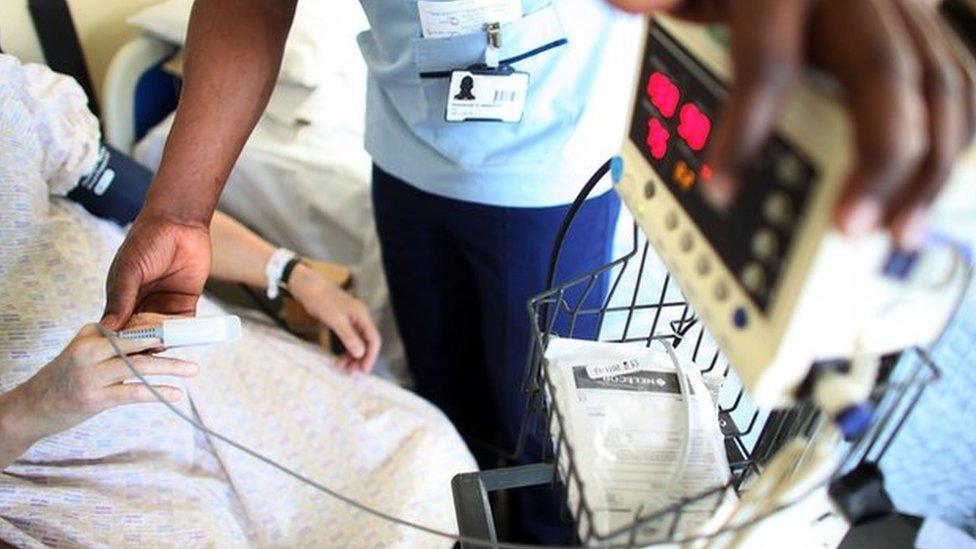
- Published3 May 2016
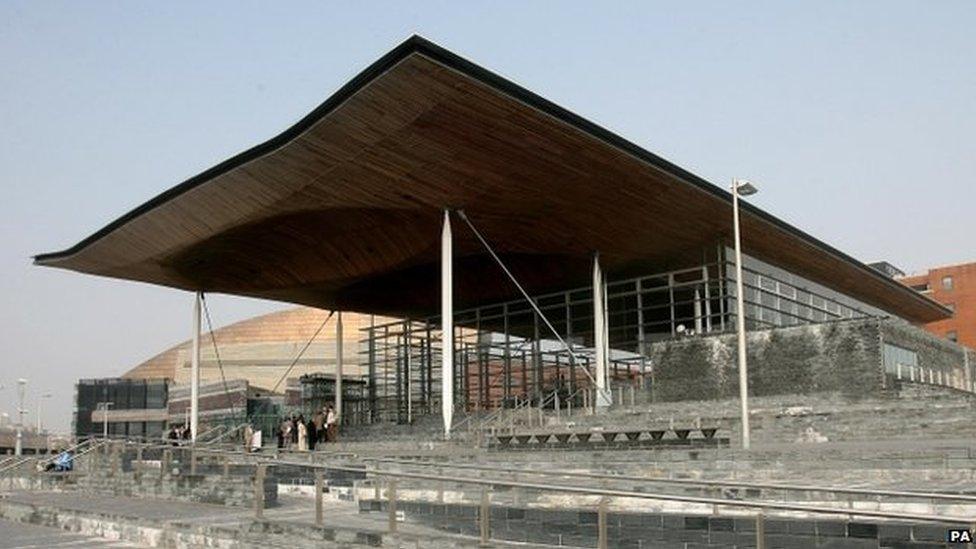
- Published27 January 2015
